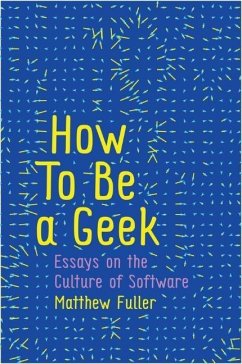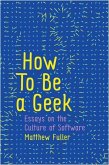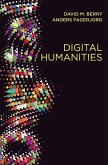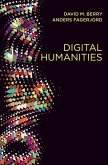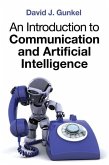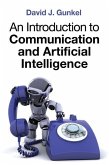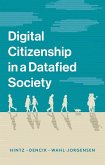Computer software and its structures, devices and processes are woven into our everyday life. Their significance is not just technical: the algorithms, programming languages, abstractions and metadata that millions of people rely on every day have far-reaching implications for the way we understand the underlying dynamics of contemporary societies.
In this innovative new book, software studies theorist Matthew Fuller examines how the introduction and expansion of computational systems into areas ranging from urban planning and state surveillance to games and voting systems are transforming our understanding of politics, culture and aesthetics in the twenty-first century. Combining historical insight and a deep understanding of the technology powering modern software systems with a powerful critical perspective, this book opens up new ways of understanding the fundamental infrastructures of contemporary life, economies, entertainment and warfare.
In so doing Fullershows that everyone must learn 'how to be a geek', as the seemingly opaque processes and structures of modern computer and software technology have a significance that no-one can afford to ignore. This powerful and engaging book will be of interest to everyone interested in a critical understanding of the political and cultural ramifications of digital media and computing in the modern world.
Hinweis: Dieser Artikel kann nur an eine deutsche Lieferadresse ausgeliefert werden.
In this innovative new book, software studies theorist Matthew Fuller examines how the introduction and expansion of computational systems into areas ranging from urban planning and state surveillance to games and voting systems are transforming our understanding of politics, culture and aesthetics in the twenty-first century. Combining historical insight and a deep understanding of the technology powering modern software systems with a powerful critical perspective, this book opens up new ways of understanding the fundamental infrastructures of contemporary life, economies, entertainment and warfare.
In so doing Fullershows that everyone must learn 'how to be a geek', as the seemingly opaque processes and structures of modern computer and software technology have a significance that no-one can afford to ignore. This powerful and engaging book will be of interest to everyone interested in a critical understanding of the political and cultural ramifications of digital media and computing in the modern world.
Hinweis: Dieser Artikel kann nur an eine deutsche Lieferadresse ausgeliefert werden.
"Insightful, informative, provocative and brilliant, Fuller 'geeks out' the problematic of software. In a wide-ranging analysis that moves from object oriented languages to github, from metadata to urban models, Fuller reveals software's intersecting technical, cultural and political aspects. A must read for anyone interested in software and new media studies."
Wendy Hui Kyong Chun, Brown University
"This new book from the pioneer of software studies sets a new standard for critical discussion about the crucial part of contemporary culture and society - software. From mobile apps and social networks to email and word processing, we use software everyday. Yet critical thinking about software that can combine big ideas with careful attention to small details and genealogies of software concepts, tools, and interfaces is still rare. Fuller and his collaborators both give us fresh ideas and wonderful insights, and also show us what it means to study software culture."
Lev Manovich, City University of New York
Wendy Hui Kyong Chun, Brown University
"This new book from the pioneer of software studies sets a new standard for critical discussion about the crucial part of contemporary culture and society - software. From mobile apps and social networks to email and word processing, we use software everyday. Yet critical thinking about software that can combine big ideas with careful attention to small details and genealogies of software concepts, tools, and interfaces is still rare. Fuller and his collaborators both give us fresh ideas and wonderful insights, and also show us what it means to study software culture."
Lev Manovich, City University of New York

